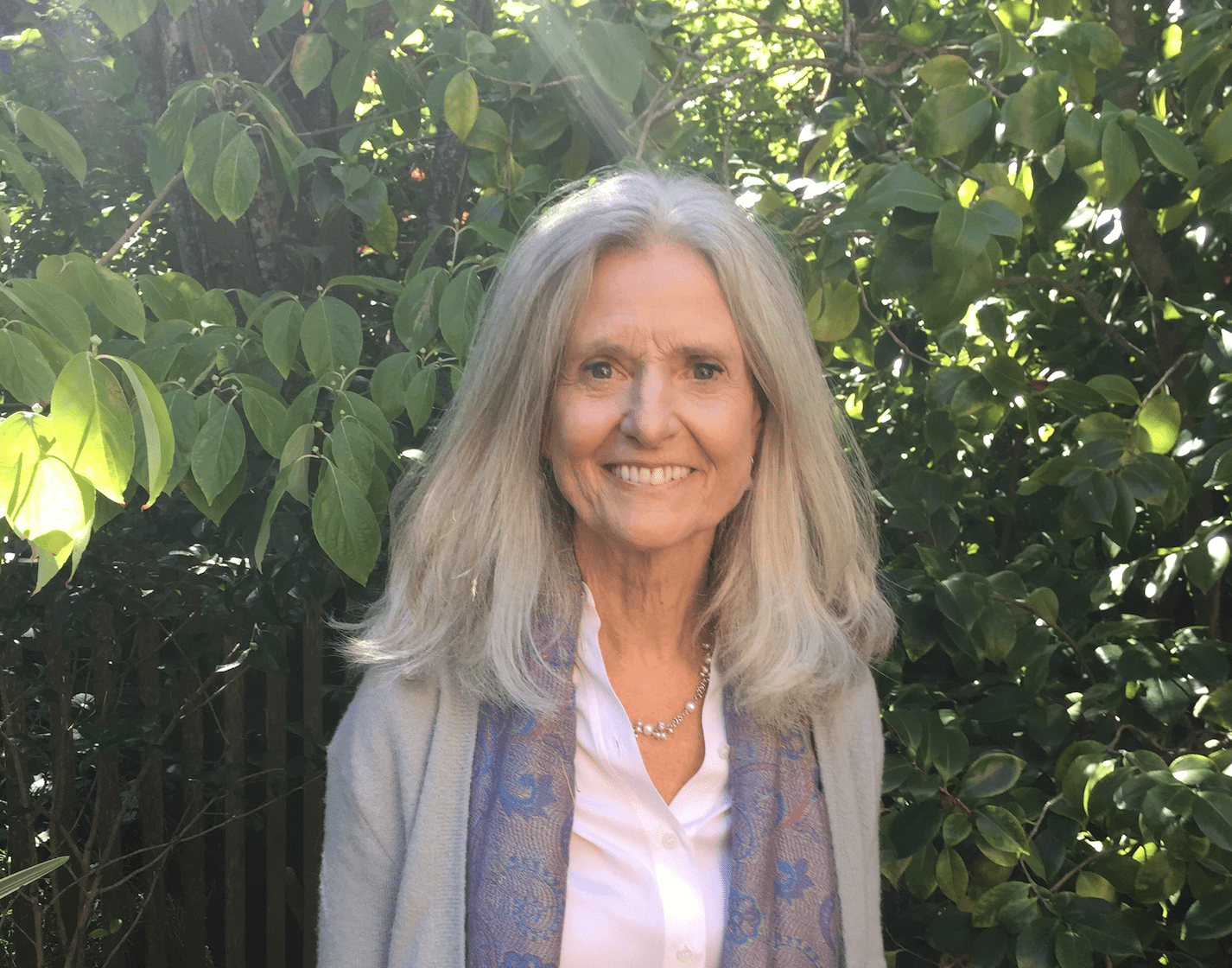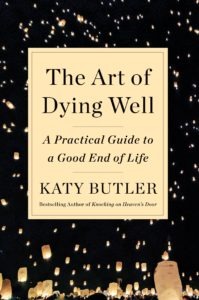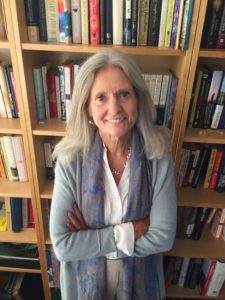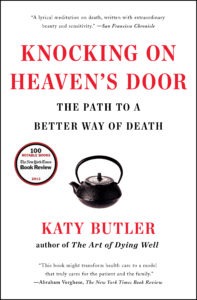Spreading the Joy of Gentle Medical Care | by

Katy Butler loves a good gamble—when the stakes are small. “I love going to the track and betting $2 on horses that I know nothing about. I go down to the paddock and see what they look like. I buy a tip sheet and study who the handicappers think the favorites are. I combine reading the sheet and my gut feel from looking at the horses. You can get very close to them and hang over the rail to watch them go around in a circle.” Horses with some pep in their step catch Butler’s eye. “I go by how lively they look. It’s not very scientific,” she admits, laughing.

“There’s a period of life between robust active living and active dying – what I call the grey zone – that we don’t talk about much as a culture.”
Butler—who lived for a year in Aspen right out of college and has fond memories of Colorado—seems to strive for a combination of serenity and joy in all aspects of her life, and this outlook has surely come in handy in her professional work, which for the past decade has focused on writing and speaking about living well despite the challenges of serious illness and/or declining mental and physical powers in the last third of life.
When Life Makes Other Plans
It’s a calling she discovered by fate when family circumstances gave her an unexpected crash course on caring for someone with dementia. When he was 79, her beloved father had a major stroke and her mother became his fulltime caregiver overnight. Her parents were in Connecticut, while Butler lived in California. She immediately flew East, and soon became a member of what she calls “the rollerboard generation,” flying back and forth across the country to help during crises. It was difficult for all of them. “Over the next six and a half years, my father developed vascular dementia and lost some of his sight, memory, and hearing. My mother loved him deeply and considered it part of her marriage vows to care for him, just as he had cared financially and otherwise for her. With heroic effort, at great cost to herself, she kept him home the entire time.”
“You’re a full human being who has not only medical needs, but spiritual and emotional needs as well.”

Katy Butler, Author
A situation like that forces all family members to abruptly adjust to a new reality. “It overturns the hierarchy in the family, and it’s wrenching to the older generation to have a daughter suddenly want and need to be a decision-maker. My parents were very independent, strong people but now I was in this role of trying to insist, for example, that they hire more help at home.” That wasn’t easy—like many caregivers, Butler’s mother initially took on way too much, trying to do everything herself until she was physically and mentally drained. “She didn’t want to lose her privacy or spend money, after a lifetime of frugality. Sometimes I would have to wait for her to hit the wall of exhaustion before she’d accept help. Then she’d let me put an ad on Craigslist and hire someone, say, to put my father to bed at night, when she was so exhausted she could scream. I found someone wonderful, and it calmed things down and made all the difference.”
The Power Of Now
Butler’s philosophy of life boils down to enjoying every second to the fullest, at every stage of your journey. That’s why she urges everyone to seize the moment instead of waiting for some sort of epiphany to tackle that bucket list. “If you care about quality of life, live it now. Don’t wait until you’re on your deathbed to decide what a “good death” might mean.”
Even for those with physical or mental health challenges, Butler says the priority should be “living a life of comfort, joy, meaning, and human connection.” She realizes that can be tough for someone suddenly confronted with a serious medical issue. “Make sure you don’t regard yourself as a bundle of diagnoses. You’re a full human being who has not only medical needs, but spiritual and emotional needs as well.”
That post-diagnosis period can be challenging for all involved, including the patient, family members, and medical professionals. The fact that average longevity has increased and many more people are now living with dementia, Alzheimer’s and related conditions for prolonged periods of time has forced everyone to develop a new mindset and change traditional thinking.

Not Forcing It
A big proponent of careful contemplation in all aspects of life, Butler says, “I embrace the principle of Slow Medicine. Let’s do things carefully and really ponder the risks as the body becomes more fragile, rather than plunge in gung-ho. If you’re young or healthy, that medical procedure might be great. But if you’re fragile and struggling with several medical issues already, the same procedure might be the worst thing for you. You might be in the stage of life that I call the House of Cards. And you might come out of the hospital worse rather than better.”
Much as she loves ritual, Butler isn’t a fan of stubbornly sticking to a routine when it amounts to just going through the motions with regards to medical care. “At a certain point, it’s fine to skip needless routine appointments. If they can’t offer anything beyond monitoring a condition for which there’s no treatment, it’s a waste of everyone’s time. Doctors want to help but are also afraid of taking away hope. Sometimes relatives, with the best of intentions, put people with dementia through harrowing medical treatments, because they just want to help and do something. They say yes to medical treatments that they’d want refused if they had dementia. But a lot of the leading experts in the field believe that the standard of care in dementia should be “comfort care only.” Don’t stress them out with routine appointments that will make no difference, or ER trips or surgeries that may do more harm than good.”
Her advice to caregivers and medical staff, when pondering a difficult medical decision, is to put yourself in the patient’s shoes. “Imagine that the person you love could return to you for 15 minutes in possession of complete mental clarity. Ask them, what kind of medical treatment would they want or not want? People with dementia – all people — deserve gentle and appropriate medical care.”
Tags: aging parents, death & dying, dementia
Leave a Comment
Please be respectful while leaving comments. All comments are subject to removal by the moderator.
